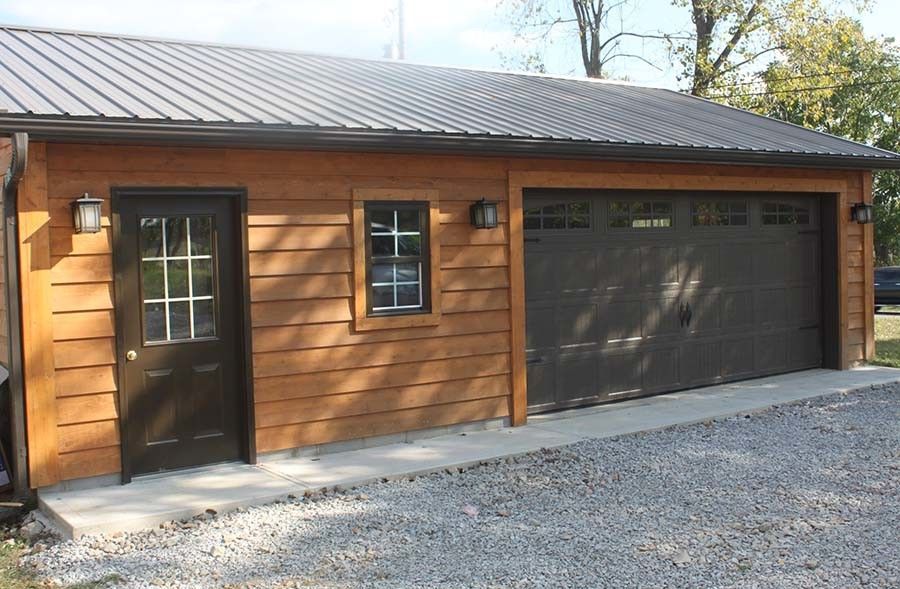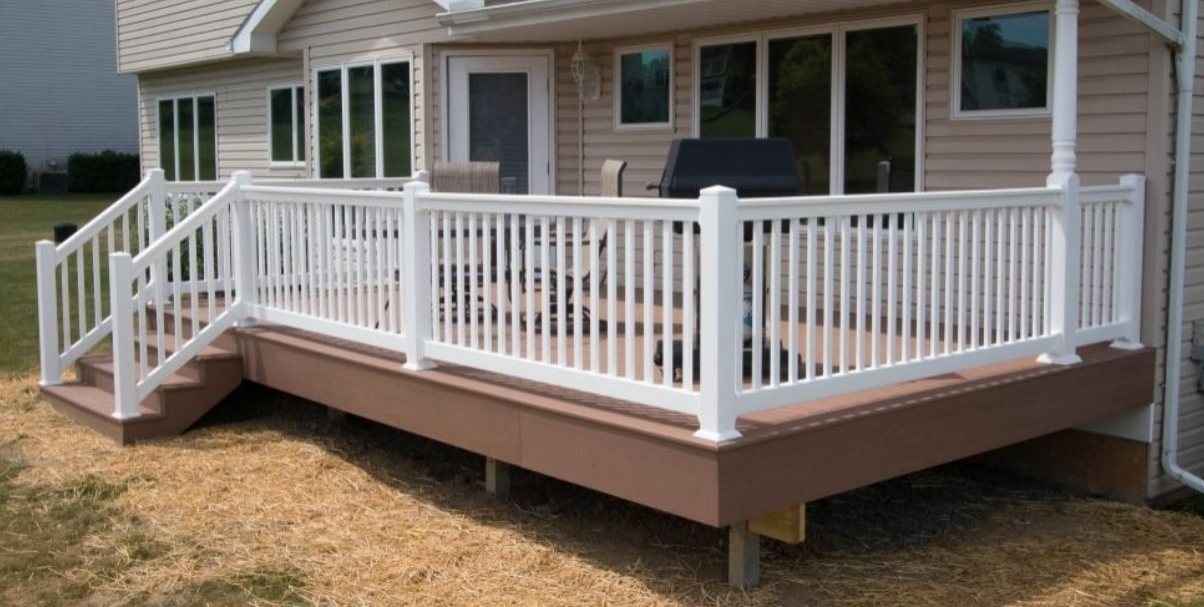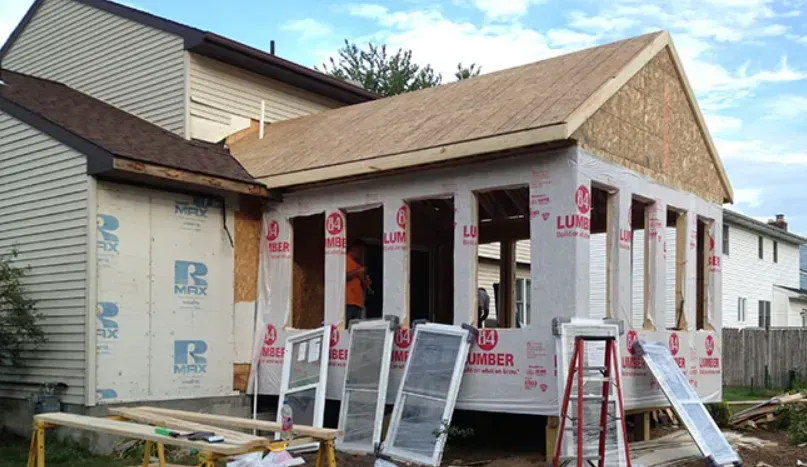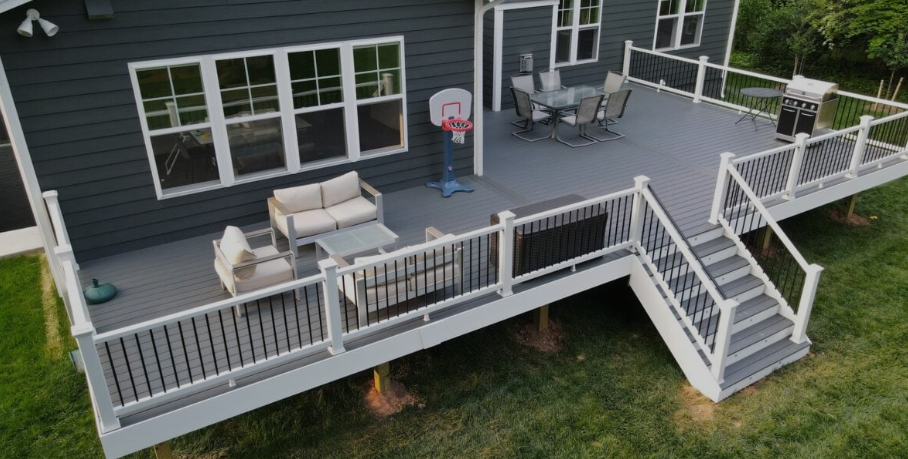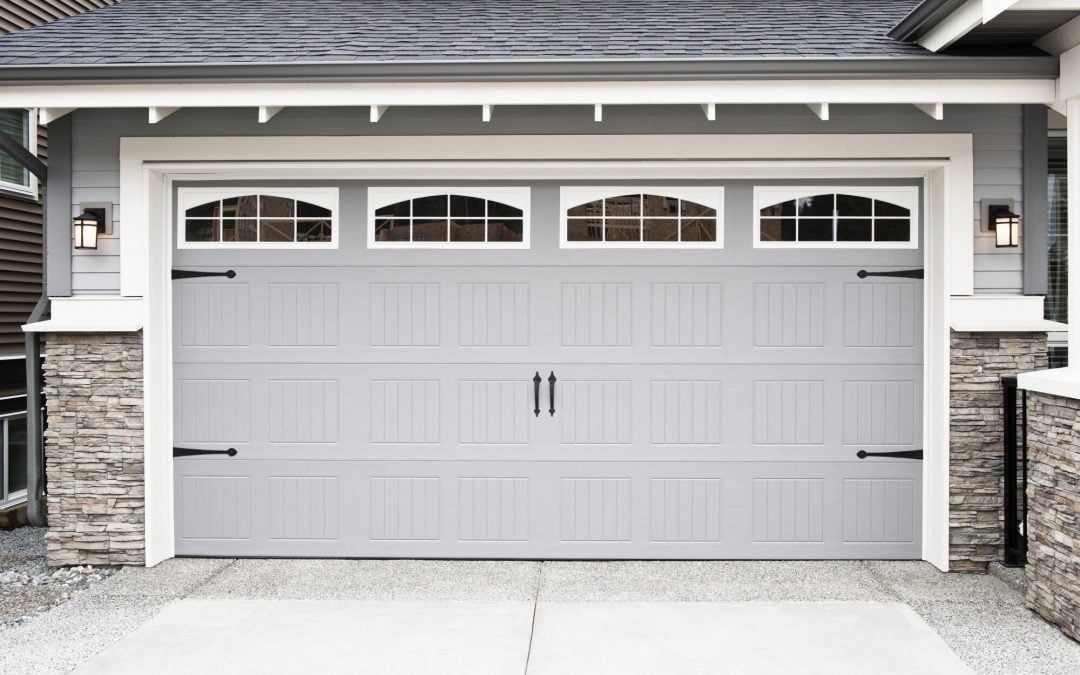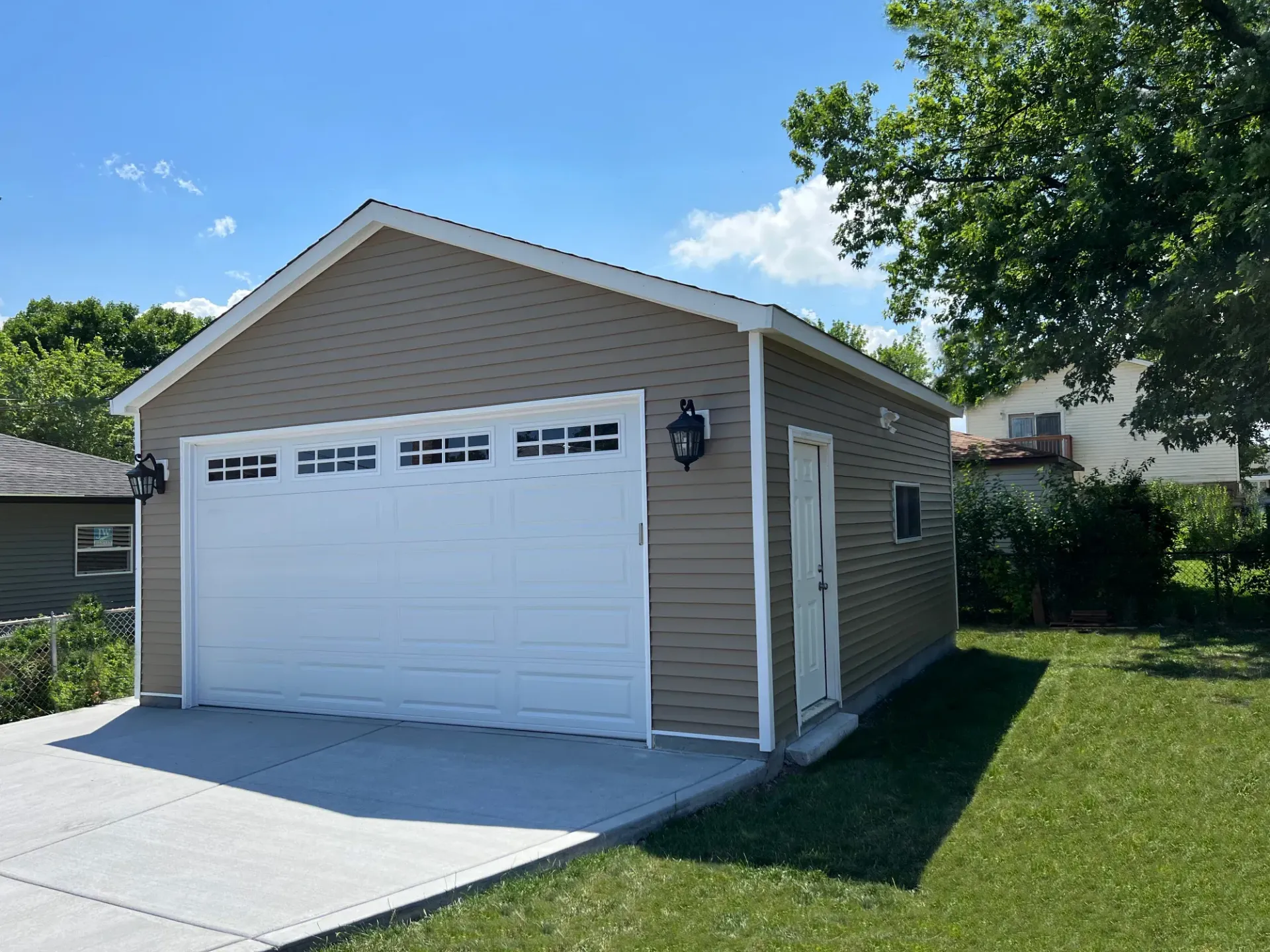Dumpster Rental for Landlords - Rhode Island
Rhode Island landlords face unique waste management challenges that set them apart from typical homeowners. From tenant turnovers in Providence triple-deckers to seasonal property cleanouts in coastal communities, rental property owners need efficient, cost-effective solutions for handling debris and unwanted belongings. Understanding how dumpster rentals specifically serve landlord needs helps property owners throughout the Ocean State maintain their investments while managing costs and timelines effectively.
Rhode Island Landlord Waste Management
Landlords managing Rhode Island rental properties encounter debris removal situations homeowners rarely face. Tenant turnovers often reveal abandoned belongings, damaged items, and accumulated trash requiring prompt removal before new occupants move in. Eviction cleanouts create particularly challenging scenarios where entire apartments or houses need complete clearing under tight timelines dictated by court orders or lease agreements.
Property improvements between tenants generate construction debris from updated kitchens, refreshed bathrooms, or repaired structural issues. Rhode Island's aging housing stock - particularly in Providence, Pawtucket, and Woonsocket - often requires regular maintenance generating substantial waste. Multi-unit property owners might coordinate improvements across several units simultaneously, creating concentrated debris volumes demanding professional waste management solutions.
Providence Landlord Challenges
Providence landlords managing properties throughout the city's diverse neighborhoods understand the particular complications of urban rental property management. Federal Hill's historic triple-deckers, College Hill's converted mansions, and Elmwood's multi-family homes all generate regular turnover requiring efficient cleanout capabilities. The city's density makes storing debris impossible, necessitating prompt removal maintaining property aesthetics and neighborhood standards.
Street parking limitations and permit requirements add complexity to Providence landlord dumpster rentals. Properties without adequate driveways require street placement permits from the city, adding administrative steps to already busy turnover schedules. Experienced Providence landlords build these permit timelines into their turnover processes, applying for placement authorization concurrent with scheduling other turnover tasks like painting and repairs.
Warwick Multi-Family Properties
Warwick's substantial multi-family housing stock creates steady landlord demand for dumpster rental services. Properties throughout Pawtuxet Village, Oakland Beach, and western Warwick neighborhoods experience regular turnovers requiring systematic cleanout approaches. Landlords managing multiple Warwick properties often develop relationships with rental companies, streamlining the process through familiarity and potentially preferential service.
Seasonal patterns affect Warwick landlord needs, particularly for properties near beaches or recreational areas. Summer lease expirations in coastal areas create concentrated turnover periods when multiple properties simultaneously need cleanouts. Planning ahead and booking dumpster rentals early during peak seasons ensures equipment availability when landlords need it most.
Cranston Rental Property Management
Cranston landlords benefit from the city's mix of housing types offering various rental opportunities. Garden City apartments, western Cranston single-families, and multi-unit properties throughout the city all generate periodic waste management needs. Understanding typical debris volumes from different property types helps Cranston landlords select appropriate dumpster sizes and rental durations.
Properties in established Cranston neighborhoods often feature modest lot sizes and shared driveways, creating placement challenges similar to Providence despite Cranston's somewhat more spacious character. Landlords must coordinate with tenants or neighbors about temporary dumpster placement, demonstrating the communication skills successful rental property management requires throughout Rhode Island's interconnected communities.
Northern Rhode Island Rental Markets
Northern Rhode Island communities including Woonsocket, Cumberland, Central Falls, and Pawtucket host significant rental property housing. Woonsocket's historic triple-deckers house multiple tenant families, creating regular turnover and maintenance needs. Central Falls, Rhode Island's most densely populated community, presents unique challenges with limited property access and tight neighborhood configurations.
Landlords in these communities often manage working-class tenants whose lease violations or financial difficulties sometimes result in abandoned belongings and damaged properties. These situations create unpredictable waste volumes requiring flexible dumpster rental arrangements. Building relationships with responsive rental companies that can accommodate varying debris amounts helps northern Rhode Island landlords manage these uncertainties effectively.
Coastal Property Seasonal Considerations
Rhode Island's coastal rental properties from Narragansett to Little Compton operate on seasonal rhythms affecting landlord waste management needs. Summer vacation rentals generate weekly turnover requiring regular but modest cleanouts - primarily departure trash and occasional abandoned items. Seasonal lease transitions in May and September create more substantial debris as year-round or seasonal tenants completely vacate properties.
Coastal landlords must also manage storm debris following nor'easters and occasional hurricanes impacting Rhode Island's shoreline. Beach cottage damage from winter storms might not be discovered until spring opening, creating urgent cleanout needs as rental season approaches. Maintaining relationships with dumpster rental companies facilitates quick response when these situations arise.
Student Housing and University Area Properties
Providence's concentration of colleges and universities - Brown, RISD, Providence College, and Johnson & Wales - creates unique landlord situations in surrounding neighborhoods. Student housing experiences predictable annual turnover around academic calendars, generating concentrated May cleanout needs when students vacate for summer. Landlords managing multiple student properties often need several dumpsters delivered and swapped rapidly during this compressed timeline.
Student tenants occasionally abandon substantial belongings - furniture, clothing, kitchenware - requiring disposal before summer maintenance or new tenant arrival. Understanding typical student turnover volumes helps Providence student housing landlords budget appropriate dumpster sizes and rental frequencies. Some landlords schedule annual spring dumpster rentals as routine maintenance expenses, simplifying planning and ensuring availability during peak demand periods.
Size Selection for Landlord Projects
Selecting appropriate dumpster sizes depends on property types and situations landlords face. Single-family home cleanouts following tenant departures often work well with 15-yard dumpsters measuring 12'L x 7.6'W x 4.6'H. These containers handle typical apartment contents including furniture, personal items, and accumulated household debris without overwhelming smaller property driveways or yards.
For larger multi-family properties or situations involving substantial renovations between tenants, 20-yard dumpsters measuring 14'L x 8'W x 6.5'H provide extra capacity while maintaining manageable footprints. Both sizes typically include 2 tons of disposal capacity with rental periods up to 7 days - adequate for most landlord turnovers. Additional days cost around $8 each, while extra weight runs approximately $140 per ton, allowing landlords to budget accurately for varying situations.
Cost Management for Rental Property Owners
Rhode Island landlords managing multiple properties must carefully control maintenance and turnover costs affecting overall profitability. Dumpster rental expenses represent necessary costs but should be optimized for value. Standard 15-yard dumpster rentals around $475 and 20-yard containers near $540 offer predictable pricing that simplifies budgeting for regular turnovers.
Smart landlords minimize dumpster needs through preventive strategies. Thorough tenant screening reduces problem tenancies resulting in abandonment or damage. Clear lease terms about property conditions at departure encourage tenants to remove belongings. Final walkthrough procedures identify disposal needs early, allowing landlords to schedule appropriately sized dumpsters rather than ordering multiple rentals or oversized containers.
Strategic Timing for Landlord Rentals
Coordinating dumpster delivery with other turnover tasks maximizes efficiency and minimizes vacancy periods. Smart landlords schedule dumpster arrival concurrent with cleanout and maintenance work, allowing contractors and cleaning crews to dispose of debris immediately. This coordination keeps projects moving rapidly, reducing vacancy costs that typically exceed dumpster rental expenses significantly.
Rhode Island's lease cycle patterns create predictable busy periods - May/June for student housing, August/September for general residential turnovers. Landlords booking dumpsters weeks in advance during these peak periods ensure availability and potentially negotiate better rates for advance commitments. Off-season turnovers might offer more flexible scheduling and availability as demand slackens.
Managing Abandoned Property Legally
Rhode Island landlords must navigate legal requirements when disposing of tenant belongings following lease terminations. State law governs how landlords handle abandoned property, requiring specific notice periods and procedures before disposal. Understanding these requirements prevents legal complications while still allowing efficient property turnovers.
Dumpster rentals serve landlords well after satisfying legal obligations, providing appropriate disposal methods for items tenants failed to retrieve. Documentation of abandoned items and disposal timelines protects landlords from potential disputes. Many experienced Rhode Island landlords photograph abandoned belongings before disposal, creating records supporting their compliance with legal requirements.
Multi-Unit Property Coordination
Landlords managing apartment buildings or multi-family properties face coordination challenges when scheduling dumpsters. Multiple simultaneous turnovers might share single containers, requiring planning about placement location, access for different units, and communication among contractors working various apartments. Driveway or parking lot placement centralizes debris collection while minimizing disruption to occupied units.
Some larger Rhode Island apartment complexes maintain semi-permanent dumpster services for ongoing waste management, but temporary rentals still serve periodic needs like spring cleaning, bulk item collection, or concentrated renovation projects affecting multiple units. Understanding when permanent versus temporary solutions make economic sense helps landlords optimize waste management costs across their portfolios.
Contractor Relationships and Dumpster Coordination
Rhode Island landlords typically work with regular contractors handling turnover maintenance, repairs, and improvements. Coordinating dumpster availability with contractor schedules ensures efficient project completion. Some landlords allow trusted contractors to arrange dumpster rentals directly, simplifying logistics while ensuring contractors have necessary waste disposal throughout projects.
Clear communication about who orders dumpsters, pays rental costs, and coordinates delivery prevents confusion and delays. Some landlord-contractor arrangements include dumpster coordination in contractor proposals, creating single-point accountability. Others maintain landlord control over rental arrangements, preferring direct relationships with waste management companies and consolidated billing for accounting purposes.
Property Improvement Projects
Beyond tenant turnovers, Rhode Island landlords undertake property improvements maintaining competitiveness in rental markets. Kitchen and bathroom updates, flooring replacements, and exterior renovations generate construction debris requiring appropriate disposal. These planned improvements allow more flexibility in dumpster scheduling than urgent turnover situations, enabling landlords to optimize timing and potentially negotiate volume discounts with rental companies.
Larger improvement projects might require multiple dumpsters as work progresses through demolition, construction, and finishing phases. Staging dumpster deliveries matches waste removal to debris generation, avoiding overflowing containers or long-term rentals during project phases generating little waste. This strategic approach minimizes costs while maintaining organized, safe work environments for contractors.
Eviction Cleanout Considerations
Eviction situations create particularly challenging waste management scenarios for Rhode Island landlords. Court-ordered evictions often result in properties filled with tenant belongings requiring complete removal under compressed timelines. These situations generate unpredictable debris volumes - some evicted tenants leave minimal belongings while others abandon entire households.
Landlords facing eviction cleanouts benefit from rental companies willing to provide flexible arrangements, potentially delivering containers before exact volumes are known, then swapping for larger sizes if needed. This flexibility prevents project delays while protecting landlords from ordering excessively large dumpsters for relatively modest cleanout needs. Experienced rental companies familiar with eviction situations understand these dynamics and can advise appropriate approaches.
Seasonal Preparation for Rental Properties
Rhode Island's distinct seasons create maintenance rhythms for rental properties. Spring brings property opening for vacation rentals, outdoor repairs, and landscape cleanup. Fall involves winterization, storm preparation, and interior improvement projects before heating season. These seasonal patterns create predictable dumpster rental needs landlords can plan into annual maintenance calendars.
Vacation rental properties throughout coastal Rhode Island require spring and fall transitions generating debris from storm damage repairs, equipment replacement, and property improvements completed during off-season. Landlords managing these properties often schedule annual dumpster rentals as routine expenses, simplifying planning and ensuring winter-accumulated debris doesn't compromise summer rental readiness.
Documentation and Record-Keeping
Organized Rhode Island landlords maintain detailed records of property expenses including dumpster rentals. These records support tax deductions, track maintenance costs affecting property valuations, and document property conditions for potential disputes. Retaining dumpster rental receipts, delivery confirmations, and disposal documentation creates comprehensive property files supporting professional management practices.
Some landlords photograph loaded dumpsters before pickup, creating visual records of disposal activities. This documentation can prove valuable if questions arise about specific items' disposal or if disputes emerge regarding abandoned property. While not strictly necessary, thorough documentation reflects professional management standards and can provide protection in contentious situations.
Insurance and Liability Considerations
Rhode Island landlords should verify that dumpster rental companies maintain appropriate insurance protecting against property damage during delivery, placement, or pickup. Reputable companies carry liability coverage and provide evidence upon request. This protection matters tremendously given the tight access and challenging placement situations common throughout Rhode Island's dense neighborhoods.
Landlords' own insurance policies should cover rental property maintenance activities including dumpster placement. Reviewing policies with insurance agents ensures adequate coverage for these routine but potentially liability-creating activities. Understanding insurance requirements and protections prevents unpleasant surprises if accidents or property damage occurs during waste removal operations.
Environmental Responsibility in Property Management
Forward-thinking Rhode Island landlords consider environmental impacts of waste disposal from their properties. Working with rental companies prioritizing recycling and responsible disposal demonstrates environmental stewardship while often reducing disposal costs. Materials like metal, wood, and cardboard from renovation projects can frequently be diverted from landfills.
Some landlords implement donation programs for usable items abandoned by tenants, reducing disposal volumes and supporting Rhode Island charitable organizations. Coordinating with nonprofits to collect furniture, household goods, and clothing before ordering dumpsters minimizes waste while benefiting community members. This approach enhances landlords' reputations while advancing environmental and social responsibility goals.
Preparing Properties for Dumpster Delivery
Landlords should ensure properties are accessible and ready for dumpster delivery before scheduled arrival. Clear driveways, remove vehicles from placement areas, and verify adequate clearance for delivery trucks navigating Rhode Island's often tight residential streets. Preparing properties prevents delivery delays and ensures containers land precisely where needed for efficient loading.
For properties requiring street placement, landlords should obtain necessary permits well before delivery dates. Providence, Warwick, Cranston, and other municipalities require advance permit applications, and processing times vary. Starting permit processes early prevents situations where dumpsters arrive but cannot be placed due to missing authorizations, creating expensive rescheduling and potential rental charges.
Making Landlord Dumpster Rentals Work
Successful Rhode Island landlords master dumpster rental logistics through experience, planning, and strong vendor relationships. Understanding typical debris volumes from different property types and situations allows accurate size selection. Timing rentals to match turnover schedules minimizes vacancy periods while ensuring adequate time for thorough cleanouts and repairs.
Treating dumpster rental expenses as routine operating costs rather than unexpected charges improves financial planning and budgeting accuracy. Setting aside funds for periodic rentals prevents cash flow surprises when turnovers or improvements require waste removal. This professional approach to property management distinguishes successful landlords from those perpetually reacting to situations rather than proactively managing them.
Your Rhode Island Rental Property Partner
For reliable dumpster rental services supporting Rhode Island landlords throughout the Ocean State, contact Rockhouse Disposal. Our team understands rental property challenges and provides flexible, responsive service accommodating unpredictable turnover situations. We offer 15-yard dumpsters for $475 and 20-yard containers for $540, both including 2 tons of debris and up to 7 days rental. Additional days cost just $8 each, and extra weight runs $140 per ton - transparent pricing that helps landlords budget accurately for property maintenance. Whether managing a single rental property or an extensive portfolio, we deliver dependable service and local expertise that keeps Rhode Island rental properties properly maintained and turnover-ready.
Reach out today to discuss your property management needs and establish a reliable partnership for all your waste removal requirements.
